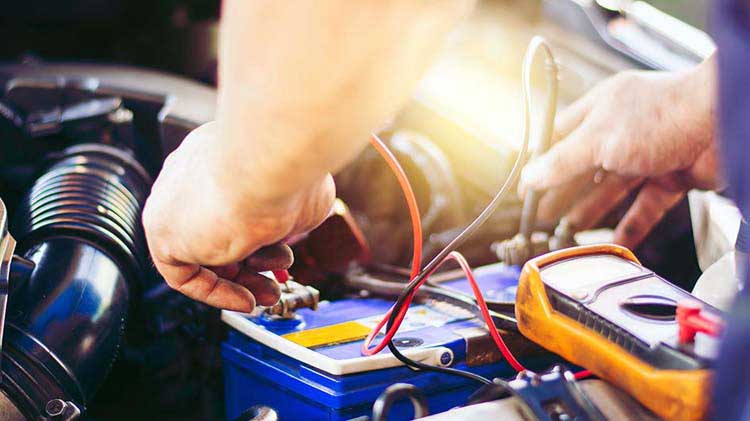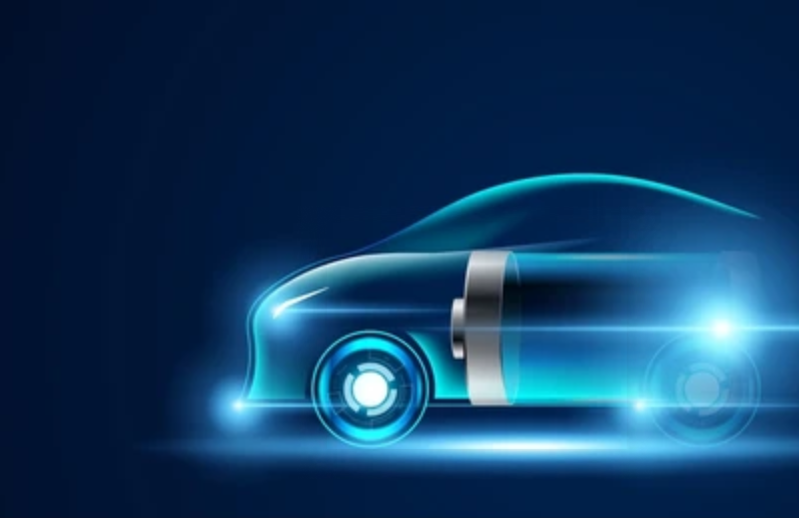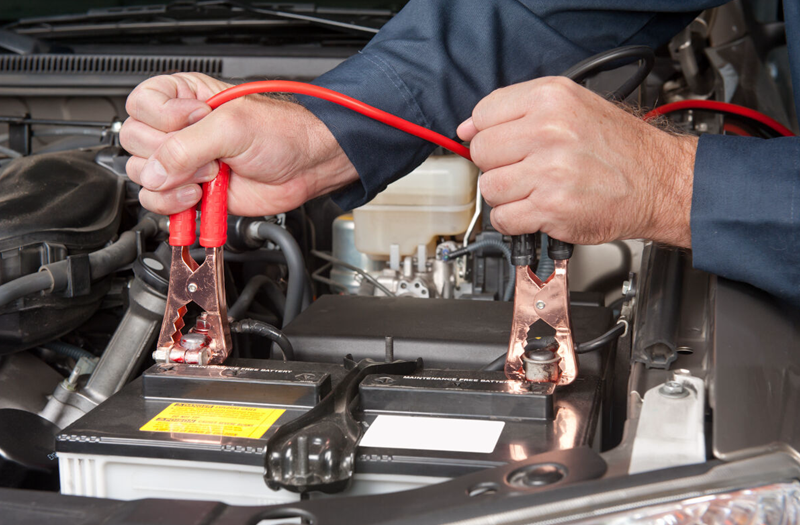How to Choose the Best Lifepo4 Battery Supplier for Your Business Needs
Lithium Iron Phosphate (LiFePO4) batteries are becoming increasingly popular in various industries, from electric vehicles to renewable energy systems. With the growing demand for this technology, choosing the right supplier becomes crucial. A reliable supplier not only ensures high-quality products but also provides timely delivery and competitive pricing. Here are some factors to consider when choosing the best LiFePO4 battery supplier for your business needs.
Quality Control Standards
The quality of LiFePO4 batteries depends on the manufacturing process, and a reliable supplier must have strict quality control standards in place. Look for suppliers who have certifications such as ISO 9001, ISO 14001, or UL. These certifications ensure that the supplier follows specific quality control protocols, and their products meet international standards.
Range of Products
Different businesses have varying needs, and a good LiFePO4 battery supplier should offer a wide range of products to cater to these needs. Whether you need batteries for electric vehicles, solar energy systems, or backup power, the supplier should have a variety of options to choose from. Also, ensure that the supplier can provide customized solutions to meet your specific requirements.
Manufacturing Capacity
The supplier’s manufacturing capacity is another crucial factor to consider. A reliable supplier should have a large production capacity to meet your needs promptly. Also, they should have advanced manufacturing equipment and processes to ensure consistent quality.
Pricing and Payment Terms
Pricing is a critical factor when choosing a LiFePO4 battery supplier, but it should not be the only consideration. Look for suppliers who offer competitive prices without compromising on quality. Additionally, the supplier should have flexible payment terms that suit your business’s financial needs.
Delivery Time and Logistics
The supplier’s delivery time and logistics play a significant role in ensuring that your business operations run smoothly. Look for suppliers who have efficient delivery systems and can provide timely delivery. Additionally, they should have reliable logistics partners to ensure that the products reach you safely and on time.
After-Sales Service
A reliable LiFePO4 battery supplier should provide excellent after-sales service. This includes technical support, product warranty, and replacement options. Ensure that the supplier has a responsive customer service team that can address any issues promptly.
Reputation and Customer Reviews
The supplier’s reputation and customer reviews can give you an idea of their level of customer satisfaction. Look for suppliers who have a good reputation in the industry and positive customer reviews. You can check online forums, social media platforms, and review sites to get feedback from other customers.
In conclusion, choosing the right LiFePO4 battery supplier is crucial to the success of your business operations. By considering factors such as quality control standards, range of products, manufacturing capacity, pricing, delivery time, after-sales service, and reputation, you can make an informed decision and find a reliable supplier that meets your business needs.
Time: 2023-8-12
In today's fast-paced and ever-connected world, staying connected while on the go has become a necessity. Whether it's for work or personal use, having a reliable and portable power source is essential. This is where the mobile digital lithium battery comes into play, revolutionizing the way we stay connected. The mobile digital lithium battery is a compact and portable power solution that allows users to charge their devices anytime and anywhere. With its lightweight design and high capacity, it provides the convenience of on-the-go power without compromising on performance. One of the key advantages of the mobile digital lithium battery is its compatibility with a wide range of devices. From smartphones and tablets to smartwatches and Bluetooth earphones, this versatile power source can charge them all. This eliminates the need to carry multiple chargers or worry about finding a power outlet in unfamiliar places. Furthermore, the mobile digital lithium battery boasts a fast-charging capability, ensuring that devices can be charged quickly and efficiently. This is particularly useful in situations where time is of the essence, such as during business trips or emergency situations. With a high-speed charging feature, users can get their devices up and running in no time. Another notable feature of the mobile digital lithium battery is its long-lasting power. Thanks to its advanced lithium-ion technology, it provides a reliable and stable power supply that can last for extended periods. This is especially beneficial for individuals who are constantly on the move and may...
Time: 2023-7-16
Introduction: Golf carts have become a common mode of transportation in golf courses, retirement communities, and even some residential areas. These compact electric vehicles are not only convenient but also environmentally friendly. However, the performance and longevity of a golf cart heavily rely on the quality and maintenance of its battery. In this article, we will explore the importance of a golf cart battery and discuss tips to ensure optimal performance and longevity. Importance of a Golf Cart Battery: The battery is the powerhouse of a golf cart. It provides the necessary energy to propel the vehicle and operate various electrical components such as lights, radios, and GPS systems. A high-quality battery can significantly impact the overall performance, efficiency, and lifespan of the golf cart. Therefore, it is crucial to invest in a reliable battery and take proper care of it. Choosing the Right Battery: Selecting the right battery for your golf cart is essential. There are several factors to consider, including battery type, voltage, capacity, and brand reputation. Golf cart batteries are typically available in three types: lead-acid, gel, and lithium-ion. Lead-acid batteries are the most common and cost-effective option, but they require regular maintenance. Gel and lithium-ion batteries are more expensive but offer longer lifespan and require less maintenance. It is also important to consider the voltage and capacity of the battery. Golf carts generally use 6-volt, 8-volt, or 12-volt batteries. Higher voltage batteries tend to provide more power and longer range. The capacity, measured...
Time: 2023-8-6
Introduction: In today's fast-paced world, reliable and long-lasting power sources are essential for various applications, ranging from renewable energy storage systems to electric vehicles. One such power source gaining popularity is the High-Capacity 12V 100Ah LiFePO4 Lithium Battery. This advanced lithium battery offers numerous advantages over traditional lead-acid batteries, including higher energy density, longer lifespan, and increased safety. In this article, we will explore the features and benefits of this cutting-edge lithium battery technology. Features: The High-Capacity 12V 100Ah LiFePO4 Lithium Battery is designed to provide a constant and reliable power supply in various demanding applications. With a capacity of 100Ah, this battery can store a substantial amount of energy, ensuring long-lasting power. The 12V voltage rating makes it compatible with a wide range of devices and systems. One of the key features of this lithium battery is its high energy density. Compared to traditional lead-acid batteries, LiFePO4 batteries offer significantly higher energy density, meaning they can store more energy in a smaller footprint. This compact size is advantageous for applications where space is limited, such as in electric vehicles or portable power systems. Another notable feature of the High-Capacity 12V 100Ah LiFePO4 Lithium Battery is its long lifespan. Lithium iron phosphate (LiFePO4) chemistry is known for its exceptional cycle life, capable of enduring thousands of charge-discharge cycles without significant degradation. This extended lifespan translates to lower maintenance costs and a reduced need for frequent battery replacements. Benefits: The High-Capacity 12V 100Ah LiFePO4 Lithium Battery offers...
Time: 2024-11-8
Today, as global climate change and environmental protection become increasingly important, the automotive industry is undergoing a profound transformation. In this transformation, automotive lithium batteries, as the core components of new energy vehicles, are leading the automotive industry into a greener, more environmentally friendly and sustainable future with their unique advantages. This article will provide you with an in-depth understanding of the development history, key technologies, market trends and their impact on the automotive industry and society at large of automotive lithium batteries. 1. Development History of Automotive Lithium Batteries The research, development and application of automotive lithium batteries can be traced back to the end of the last century. With the rapid development of the new energy vehicle industry, lithium battery technology has also made great progress. From the initial lithium cobalt oxide battery, to the later lithium manganese oxide battery, lithium iron phosphate battery, to the now highly anticipated ternary lithium battery and solid-state battery, the energy density, cycle life, safety performance and other aspects of automotive lithium batteries have been greatly improved. 2. Key Technologies of Automotive Lithium Batteries The key technologies of automotive lithium batteries mainly include battery materials, battery management systems (BMS), and battery thermal management systems. In terms of battery materials, researchers are committed to developing new battery materials with higher energy density, longer cycle life and higher safety. The BMS is responsible for monitoring the status of the battery and ensuring that the battery operates within a safe and efficient range. Battery thermal...
Time: 2023-8-19
Camping is a cherished pastime for outdoor enthusiasts. It allows us to disconnect from the chaos of everyday life and reconnect with nature. However, one of the challenges of camping is ensuring a reliable power source for our electronic devices and appliances. This is where the lithium camper battery comes into play - the ultimate power solution for campers. Gone are the days of relying on traditional lead-acid batteries that are heavy, bulky, and have limited capacity. Lithium camper batteries have revolutionized the camping experience by providing campers with a lightweight, compact, and long-lasting power solution. One of the standout features of lithium camper batteries is their incredible energy density. They have a much higher capacity compared to traditional lead-acid batteries, allowing campers to power their devices for longer periods without the need for frequent recharges. This means you can enjoy your camping trip without worrying about running out of power for your essential appliances such as lights, refrigerators, or even portable fans. Moreover, lithium camper batteries are known for their exceptional performance in extreme temperatures. Whether you are camping in scorching heat or freezing cold, these batteries will continue to deliver reliable power. This is particularly important for campers who venture into diverse weather conditions or remote locations where temperature fluctuations can impact battery performance. Another significant advantage of lithium camper batteries is their fast-charging capabilities. Unlike lead-acid batteries that require hours to fully charge, lithium batteries can be charged in a fraction of the...
Time: 2023-7-1
Introduction In recent years, with the growing demand for renewable energy sources and portable power solutions, the 12V 100Ah LiFePO4 battery has emerged as the ultimate power solution for various electrical needs. This technologically advanced battery offers several advantages over conventional options, making it an ideal choice for both residential and commercial applications. Unmatched Power and Efficiency The 12V 100Ah LiFePO4 battery boasts an impressive power output and energy storage capacity. As a result, it can efficiently handle high-power applications such as electric vehicles, solar energy systems, and backup power supplies. Its ability to deliver consistent power over extended periods without any loss in efficiency makes it indispensable for critical operations. Longer Lifespan One of the standout features of the LiFePO4 battery is its exceptional lifespan. Unlike traditional lead-acid batteries that deteriorate rapidly over time, the LiFePO4 battery can last more than 2000 charge-discharge cycles. This longevity not only saves costs in the long run but also reduces the environmental impact of battery disposal. Enhanced Safety Safety is a paramount concern when it comes to batteries. LiFePO4 battery technology addresses this concern by incorporating advanced safety features. These batteries are inherently stable and resistant to thermal runaway, making them significantly safer than other lithium-ion battery chemistries. Additionally, LiFePO4 batteries are free from toxic materials like lead and cadmium, making them environmentally friendly. Fast Charging Capability The 12V 100Ah LiFePO4 battery excels in its ability to charge rapidly. With a high charging...
Time: 2023-5-24
The development of lithium batteries has been a game-changer in the world of electronics, powering everything from our smartphones to electric cars. But where did this technology come from, and how has it evolved over time? The roots of lithium battery technology can be traced back to the 1970s, when researchers at the Exxon Corporation began experimenting with lithium as a potential battery material. They discovered that lithium had a high energy density, meaning it could store a lot of power relative to its size and weight. This made it an attractive candidate for portable electronics, which were becoming increasingly popular at the time. However, early attempts to create commercial lithium batteries were hampered by safety concerns. Lithium is an extremely reactive element, and in its pure form, it can catch fire or even explode when exposed to air or water. To make matters worse, the first lithium batteries used a highly flammable liquid electrolyte, which made them even more prone to thermal runaway. It wasn't until the 1990s that lithium batteries began to hit the mainstream. One key breakthrough was the development of a solid polymer electrolyte, which was much safer than the liquid electrolytes used in earlier designs. This allowed lithium batteries to be used in a wider range of applications, from mobile phones and laptops to medical devices and military equipment. Another important development was the use of cobalt oxide as the cathode material in lithium-ion batteries. This material allowed for higher energy...
Time: 2023-9-12
Communication has become an essential part of our lives. From making phone calls to browsing the internet, we rely on a robust and reliable network infrastructure to stay connected. However, in many remote or disaster-stricken areas, setting up traditional base stations can be a challenging and costly task. This is where lithium battery-powered base stations come into play, revolutionizing communication in these areas. Lithium battery-powered base stations are a game-changer when it comes to providing communication services in remote locations. These base stations are equipped with lithium batteries, which offer several advantages over the traditional power sources. Firstly, lithium batteries are lightweight and compact, making them ideal for deployment in areas where infrastructure is limited. They can be easily transported and installed, enabling quick and efficient communication setup. Lithium batteries have a higher energy density, which means they can store more energy compared to other battery types. This ensures longer operating hours for the base stations without the need for frequent recharging or replacement. In areas where power supply is unreliable or non-existent, these battery-powered base stations provide a reliable and uninterrupted communication network. Another significant advantage of lithium battery-powered base stations is their eco-friendliness. Unlike traditional power sources that rely on fossil fuels, lithium batteries are rechargeable and produce zero greenhouse gas emissions during operation. This makes them not only a cost-effective solution but also a sustainable one, contributing to a greener and cleaner environment. These base stations can be integrated with renewable energy sources...





















